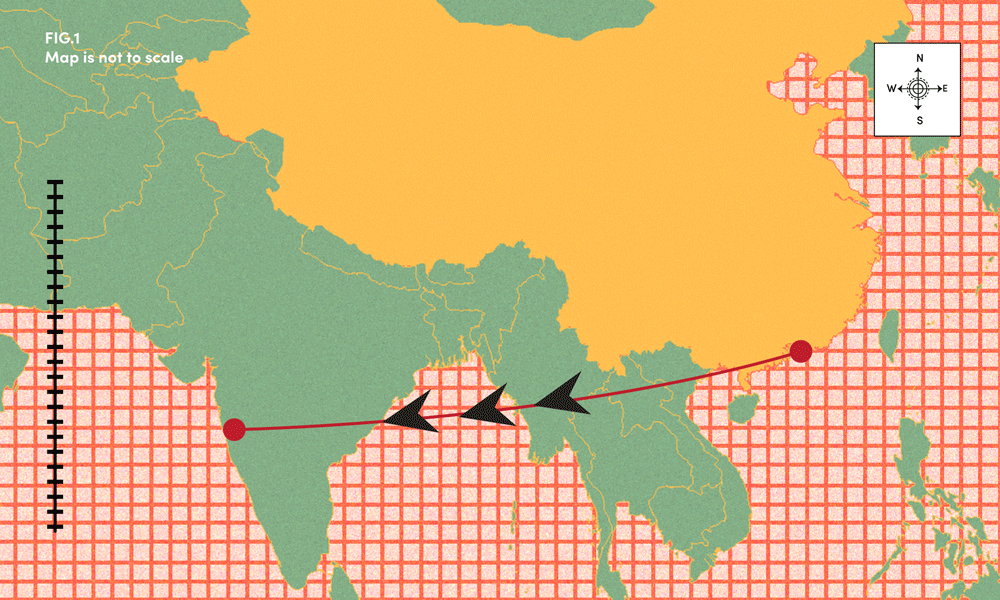Education
With Schools Shut, Indian Families From Hong Kong are Returning to India Because of Coronavirus
The viral outbreak and an impending economic dip are influencing immigrant families to reconsider their life abroad.
Hong Kong-resident Brinda Shah (name changed to protect privacy) arrived in Mumbai, India last week on a one-way ticket with her family, luggage and uncertainty in tow. Her children’s schools have been shut since mid-January with the reopening date getting pushed from February to March and now to the end of April.
The Shahs are one of the many families who are returning to India from South East Asia as fear and precarity over coronavirus spreads. According to the latest World Health Organization (WHO) report, the virus has claimed over 2,900 lives in China alone with over 90,000 cases of infection confirmed globally.
In December last year, the Chinese government informed the WHO that the virus was quickly spreading, primarily causing serious respiratory issues. Tracing its origin to the Wuhan district of China, COVID-19, which stands for coronavirus disease 2019, is caused by a virus named SARS-CoV-2. The rise in infected patients, along with misinformation, secrecy and panic has led to many Asian countries like Japan and Hong Kong scrambling to contain the virus and close schools.


The viral outbreak pushed the Jhaveri family out of Hong Kong and back to Mumbai where they’re still getting used to their new routines and change of environment. Photo courtesy: Nirali Jhaveri
For 42-year-old Nirali Jhaveri, Hong Kong has been home for the past decade. The homemaker lived there until recently with her husband and two children aged 11 and 14. While the cosmopolitan city prides itself on providing world-class schools, education of late has been disrupted because of the coronavirus outbreak and the unstable political situation. After a break for Chinese New Year, schools were supposed to open in the first week of February, but, they have remained closed as children are at a higher risk of contracting the infection.
Like the Shahs, the Jhaveri family are one of the fortunate ones who have access to resources and can leave Hong Kong to set up base in another city. Jhaveri and her family came to Mumbai last month where they have relatives, and are waiting to see how the situation plays out back in Hong Kong.
As the unexpected break extended further, some schools are using technology to help students keep up with their academic coursework. Jhaveri’s kids now attend online classes conducted by their teachers on Google Meet, a video conferencing app. Due to the time difference, the children are forced to wake up at 5:30 a.m. to attend their lessons which wind up late in the afternoon and students are also assigned homework which is submitted and corrected online.
“There is nothing tangible for the children to learn from. There are no practicals, or even physical education. These things cannot be replaced.”
With families traveling out of the city, many students struggled to attend the online sessions regularly. “The attendance of [the online classes] were quite low, but now the teachers have started taking attendance, so it has improved,” Jhaveri told Re:Set. Having grown up in Hong Kong, Jhaveri’s children are still taking time to get accustomed to life outside it, “Children in India have their exams going on right now, so my kids get bored. In Hong Kong, they had a routine, they miss [their friends].”
A primary school teacher herself, Shah reflected that while online lessons help students stay on track with the curriculum, they have not been able to fully replace the school experience for her daughters, aged 12 and 16. “There is nothing tangible for the children to learn from. There are no physics, chemistry or biology practicals, or even physical education. These things cannot be replaced,” Shah told Re:Set. The quarantine has not only disrupted school life in many countries but also people’s abilities to simply interact with one another. As a precaution, people are advised to stay away from public spaces which meant that when they were in Hong Kong, Shah’s children spent days cooped up inside the house.
“Just being in one place for days on end can be a physical hazard. They couldn’t go to the park or the public library so all they could do in their free time was sit at home, watch some TV, and go to sleep,” Shah said.
Also read: Racism and Fake News Abound: Coronavirus Is Bringing out the Worst in People
Apart from the virus, the precarious political situation in Hong Kong caused by ongoing protests have also influenced Shah’s dilemma about whether her family should consider moving back to India permanently. For the first time in a decade, the protests and other political uncertainties sent the Hong Kong economy into recession. The viral outbreak too could have a similar impact. According to a Bloomberg report, some of Asia’s biggest economies including Japan and South Korea have already taken a hit from the epidemic.
“The economy in Hong Kong is suffering. There is a beating in our salaries; restaurants, tourism, and businesses are in bad shape. The cost of living is likely to increase even more. We need a stable life,” Shah told Re:Set. “There is a pensive environment. Everything is dim and it is only getting dimmer.”

























